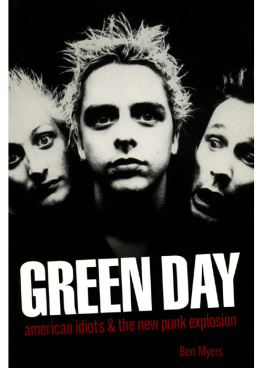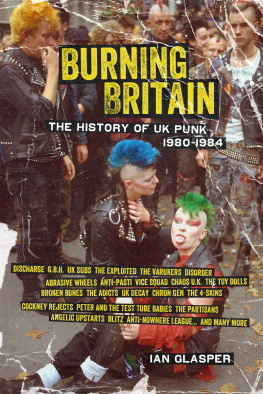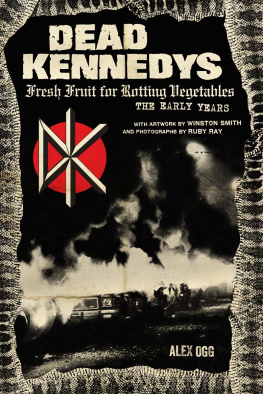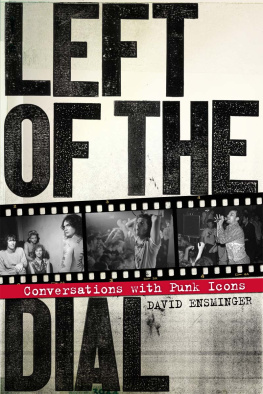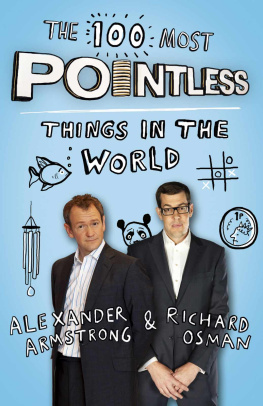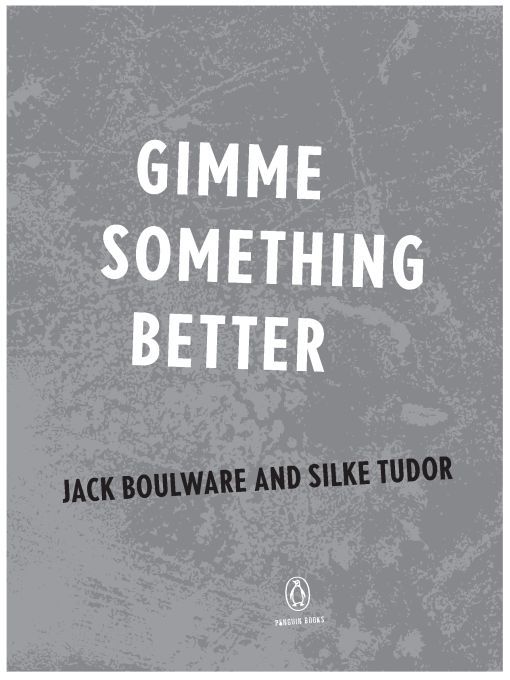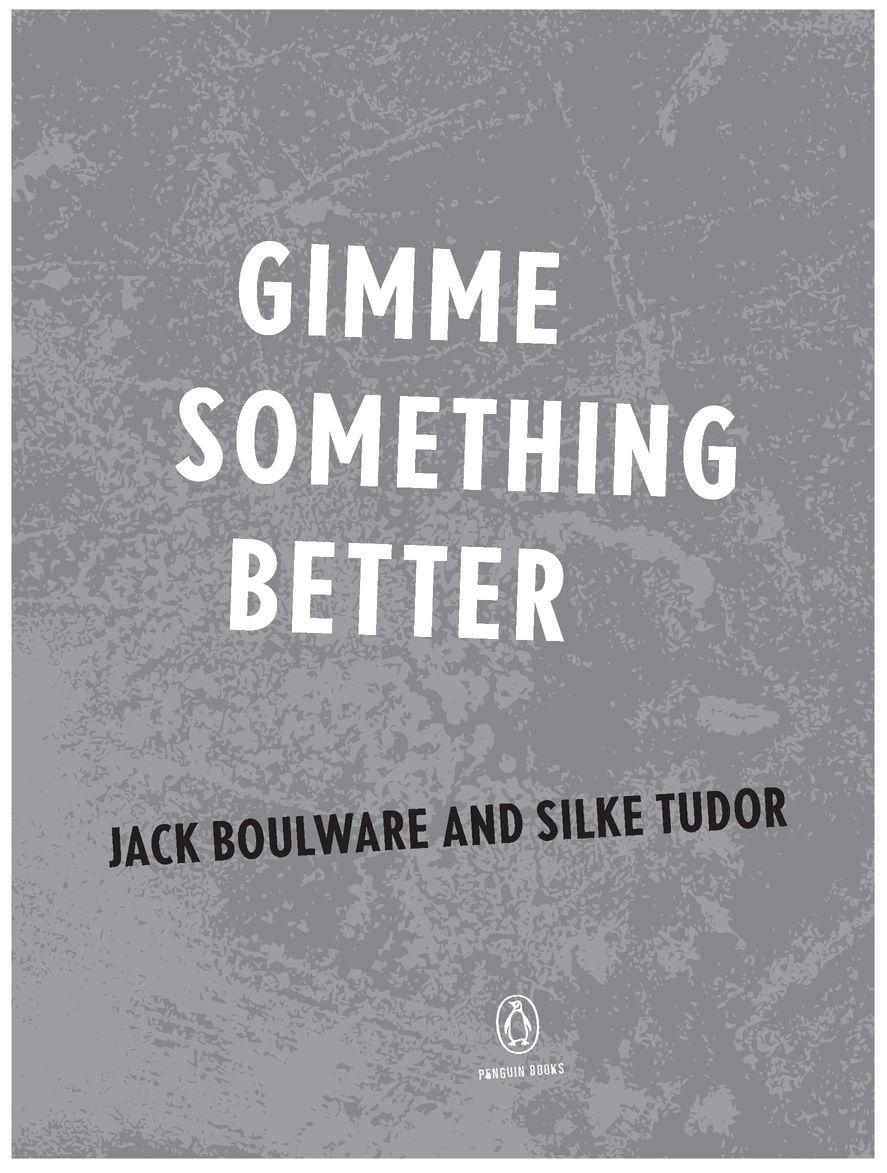Table of Contents
THE PROFOUND, PROGRESSIVE, AND OCCASIONALLY POINTLES HISTORY OF BAY AREA PUNK FROM DEAD KENNEDYS TO GREEN DAY
Dedicated to those who died while we were
putting this book together: Bob Noxious,
Bruce Conner, Dirk Dirksen,
Johnithin Christ, Lance Hahn,
Mark Junior Hampton, Max Vomit,
Mikey Donaldson, Phil Chavez, Spike,
Virginia Fuckette,
and Wes Robinson.
PREFACE
From the beginning, this was an unrealistic project. We were given one year and asked to deliver 300 pages; we took three and delivered 800. We could have doubled the number and it would never have been enough. The history of Bay Area punk is too rich and weird and horrible and wonderful, and it is by no means over. Because of this, we have set up www.gimmesomethingbetter.com, where chapters on Powell Street punks, Punk Side Story, Shred of Dignity, Sister Spit, The List, Mad Punx, Incredibly Strange Wrestling, Circuss Redickuless, PyratePunx, Geekfest, and countless other punk permutations may be explored and extrapolated. Memory is all too ephemeral and much is lost through the lens of media. We hope you will visit and add your own voice. We are deeply grateful to everyone who shared their stories with us.
Jack Boulware and Silke Tudor,
San Francisco and New York, 2009
INTRODUCTION
Punk in the Bay Area started around 1976 or 1977. There were a couple of bands. Mary Mondays I Gave My Punk Jacket to Rickie was probably the first record. Whatever you say or do, an obscurist will find something older, so theres no point in trying too hard to nail it down (unless you are an obscurist). Soon after the formative phase, there were more bands. By 1978 there were venues in San Francisco, Berkeley, Santa Cruz and other places that were doing punk shows. In the 80s we had the onset and the decline of hardcore in the original sense of that word. In the 90s we had another 100 derivations. You can read the details in this book.
The oral history format has the great advantage of eliminating The Rock Writer. The Rock Writer writing about punk generally has one aim: to arrogate intellectual ownership of something he or she knows absolutely nothing about. That bullet is dodged here.
The stories that follow are the real thing. Jack and Silke painstakingly sought out and interviewed countless people over the course of two years of nearly full-time effort. Their incredible gift, both in terms of a unique skill and in terms of what they are passing on to us, is that they found people who have a lot to say but havent said it yet in quite the way they do now. They caught the real spies at a time when those agents were most ready to tell their storywith enough distance to reflect, but not so much that they have lost the sense of excitement about what went down and what is still going on.
Many of the people who speak here are as smart and creative as it gets. That is the nature of people who are right there in the forge when a universe is being hammered out. Also featured are many complete morons. That is the nature of people that show up when there is a lot of loud noise and alcohol available. Everybody will have a different idea of which is which. The stories of the great artists arent necessarily more fun to read than those of the train-wrecks. And of course, particularly in the early days, most people in punk were a little bit of each.
People will bring their own stories to their reading of this, their own reasons for why it has meaning. For what its worth, mine is as follows:
It was 2007. I was 38 years old, broke and unhappy. I was driving from Berkeley to Sacramento and a tire blew out. It felt like a juncture where my own history was reaching some kind of summation point. Twenty-five years of punk rock, even a certain amount of success within that world, had led to this. The car was a beat-up Nissan that had 170,000 miles on it. I got out to look for a jack in the trunk. It was raining. I had cigarettes but no light. Of course there was no jack.
Giving up on repairs, I dug around in the debris in the trunk looking for matches. There were old tapes back there. While I was waiting for a friend to drive the 40 miles to the industrial farm belt I was parked in, I started cycling through the cassettes on the weary tape player in my car.
One of the tapes was an old mix a friend had made for me which he had titled Dont Laugh, Your [sic] Next! Among other bands, the strains of the Avengers, Social Unrest, Negative Trend and the Dils sputtered out of the dashboard, competing with the rain on the roof.
Once again I heard the sound. All was well. When the truth is alive, nothing life or the world or even the self comes up with can touch it. I sat there for an hour, playing that thing over and over again.
Jesse Michaels
PROLOGUE
Turds on the Run
Howie Klein: There was this hideous interlude of corporate rock where the cool Yardbirds turned into Led Zeppelin, and suddenly there was Journey and Kansas and REO Speedwagon, just all this pure garbage.
Jello Biafra: 99.9 percent of the population listened to Elton John and Saturday Night Fever. In a way, that music was a major influence on us because we hated it so much.
Dave Dictor: I couldnt go see Marshall Tucker one more time. Allman Brothers, Grateful Dead, the Who, Yes. That arena rock, it was just numbing. You were like an ant, with 40,000 other people, and you really felt disconnected from what was going on.
Max Volume: Journey. They were one of the worst.
James Stark: Jefferson Starship, all that kind of shit. Genesis.
Rozz Rezabek: Boston, Toto, REO Speedwagon, Air Supply. Michael Murphys Wildfire.
Jennifer Miro: I was in this horrible band in Mill Valley, and we did Doobie Brothers songs. I had to sing China Grove. It was the lowest point of my life.
Joe Rees: Anything disco. That type of music was part of a big corporate rip-off. It was threatening to take everyones mind away.
Penelope Houston: It looked like 1973. People were dressed in bell-bottoms and long hair and stuff like that.
Ray Farrell: There was a radio show on KPFA called Music from the Hearts of Space. Really fucking aggravating.
Steve DePace: Corporate rock bands of the day like Air Supply and Journey, the Doobie Brothers, Steely Dan, Rush. These bands were technically superb. If you were a 15-year-old kid, listening to that, you were going, How do I do that? I just wanna be in a band with my buddies and play.
Klaus Flouride: When people say, What got you into punk? I say, The Eagles. Nothing in the mainstream that was calling itself rock n roll was really rock n roll. It was easy-listening music at that point.
East Bay Ray: The music I really hated the most was fusion jazz.
Klaus Flouride: I hated fusion opera even worse.
East Bay Ray: I think thats called musicals.
Klaus Flouride: I think its called Yes. I had a dream that I was a roadie for Asia one time. I dont know what the hell that was about.
PART I
I Gave My Punk Jacket to Rickie


